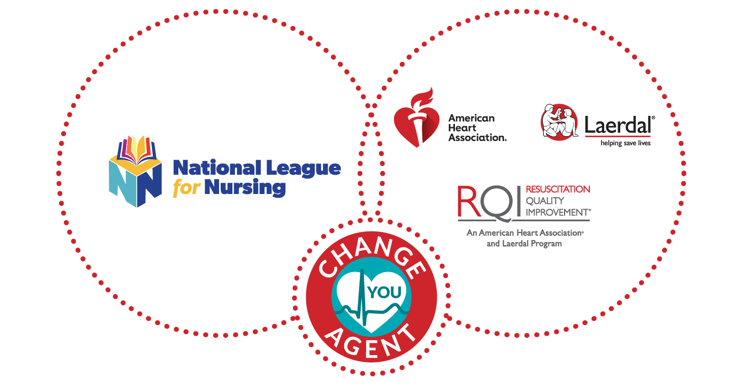Resuscitation Quality Improvement College Based Evidence
How often should students and health care providers practice their CPR skills?
Marilyn H. Oermann, PhD, RN, ANEF, FAAN
Cardiopulmonary resuscitation (CPR) skills need to be used or practiced to maintain competency. In many clinical settings, though, nurses rarely perform CPR and may only refresh their skills when required, usually every 1 or 2 years. That is not enough practice to maintain competency in these lifesaving skills. How often do your nursing students practice CPR after their initial certification in Basic Life Support (BLS)? Many studies have documented that CPR skills deteriorate rapidly, as early as 2 months after training.
A study with more than 600 nursing students confirmed that brief practice of CPR skills on manikins with automated, corrective feedback was effective for maintaining and improving skills. In that study students were randomly assigned to monthly practice of CPR skills (6 minutes) on a voice advisory manikin, which provided verbal feedback on performance, for example, “do not compress so fast” and “ventilate more slowly,” or to a control (no practice). Students who practiced retained and even improved their CPR skills over a 12-month period. Without practice, students lost their ability to compress and ventilate within a few months.
How often should students and health care providers practice their CPR skills? In a new study, nursing students’ CPR skills (compressions and ventilations) were measured with 4 different training intervals: daily, weekly, monthly, and quarterly, each for 4 times in a row. Beginning students (n = 475) in 10 schools of nursing across the United States were randomly assigned into one of these 4 training intervals. Students practiced CPR skills on a Laerdal Resuscitating Anne adult manikin on the Resuscitation Quality Improvement (RQI) mobile simulation station. As students perform compressions and bag-mask ventilations, they can view their performance in real-time on the computer screen and use this visual feedback to guide their compressions and ventilations.
Although students were all certified in BLS prior to the study, they were not able to adequately perform compressions and ventilations at pretest. The skills they developed when they completed their BLS course had already deteriorated. With RQI, students’ skills improved from sessions 1 through 4 in all training intervals (all p < .001), but daily training was the best. For nursing students and other novices learning to perform CPR, the opportunity to practice on consecutive days or weeks until they have mastered these skills may be beneficial. What is clear from these studies and other research is that CPR skills are not retained unless you practice them, and an effective way to develop and maintain these skills is by using RQI.


